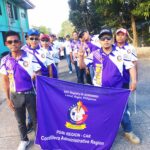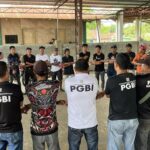PGBI Chapters
The Philippine GUARDIANS Brotherhood, Inc. (PGBI) is a non-government organization that comprises various chapters across the country. Each chapter typically operates within a specific geographic area and serves as a local unit of the larger organization. Chapters are often involved in community service, social activities, and programs that promote fellowship among members. They may also uphold and promote the core values and objectives of the Philippine Guardians, focusing on brotherhood, kinship, and support for one another. Specific details regarding the activities, governance, and membership can vary from chapter to chapter.











